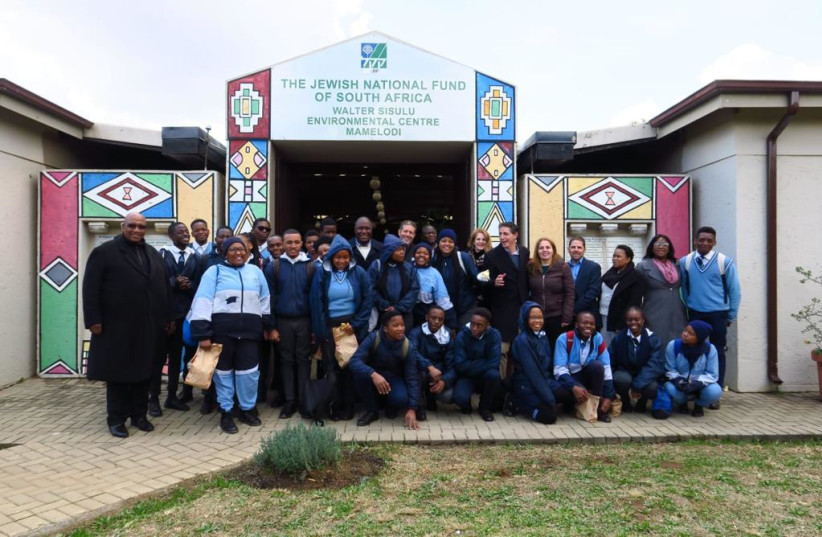A group of Israeli water technology experts visited South Africa to share their cutting-edge solutions with local officials, the South African Zionist Federation announced on Monday.
The delegations included Yechezkel Lifshitz, Director-General and Chairman of the Board of the Governmental Authority for Water & Sewage in Israel, and Dr. Yehonatan Bar-Yosef Project Manager of Water Quality Management & Ecology at Keren Kayemet LeIsrael - the Jewish National Fund.
The experts met with representatives of the City of Tshwane, in the framework of a seminar opened by Mayor Cllr Cilliers Brink.
“An opportunity to glean lessons from a country that has managed to overcome severe water scarcity is one not to be missed,” said Cilliers Brink. “These lessons would be of great assistance in framing the development of the City’s water security strategy as part of the implementation of its Climate Action Plan.”
Israel, a country that is more than half desert, is recognized as a world leader in water management and technology that produces 20% more water than it needs, and recycles over 90% of its wastewater, and is willing to share its expertise with South Africa.

“The Israeli model focuses on a professionalized water bureaucracy where strong cooperation is fostered across government departments, and amongst all stakeholders who share a seat at the table,” said Lifshitz, while sharing detailed information on how the Israeli water governance system was developed, and explaining how South Africa could look into using a similar model.
Bar-Yosef discussed how the state of Israel has tackled the sustainable management of its water resources, as a nation that lives in arid, desert-like conditions.
“Climate change requires that we take a long-term approach to water management, with the development of augmented water resources against the latest technological solutions in areas such leak detection, desalination and wastewater filtration,” he said.
Israel can offer Africa help
According to Israeli Ambassador to South Africa Eliav Belotsercovsky, Israel can offer South Africa key expertise to tackle its struggles.
“Finding ways to cooperate with Israel will help South Africa create a better future for the communities that suffer the implications of water scarcity,” he said.
Michael Kransdorf, Chairman of the Jewish National Fund of South Africa, stressed that Israeli technology is already making an impact in South Africa.
“To date, Israeli technology and innovation have provided over half a million South Africans with access to clean water,” he said. “The Israeli water delegation visit to South Africa reaffirms the need for South Africa to strengthen its ties to Israel, which remains a dedicated partner for development in our country and across the continent.”
The delegation was made possible by a strategic partnership between the SAZF, Jewish National Fund of South Africa (JNF SA), and the Israeli Embassy in South Africa, and it was supported by Keren Kayemet Le Israel (KKL- JNF).
In addition to the seminar, the Israeli experts are set to meet with officials and municipalities in other regions of South Africa, including Kwa-Zulu Natal and the Western Cape, to advise on various aspects of water technology, innovation and management.
"South Africans suffer when the South African government refuses to treat Israel and the Palestinian Authority as separate and distinct entities, and this focus only the Israeli-Palestinian conflict prevents life-changing and often low-cost Israeli water solutions to reach poor and deprived areas around South Africa,” said Rowan Polovin, National Chairman of the SAZF.
“The United Arab Emirates, India, China and others have adopted a more pragmatic de-hyphenated approach between Israel and the Palestinians, which allows them to have separate relations with both and benefit from Israeli solutions in technology, agriculture, health, and water,” he concluded.
